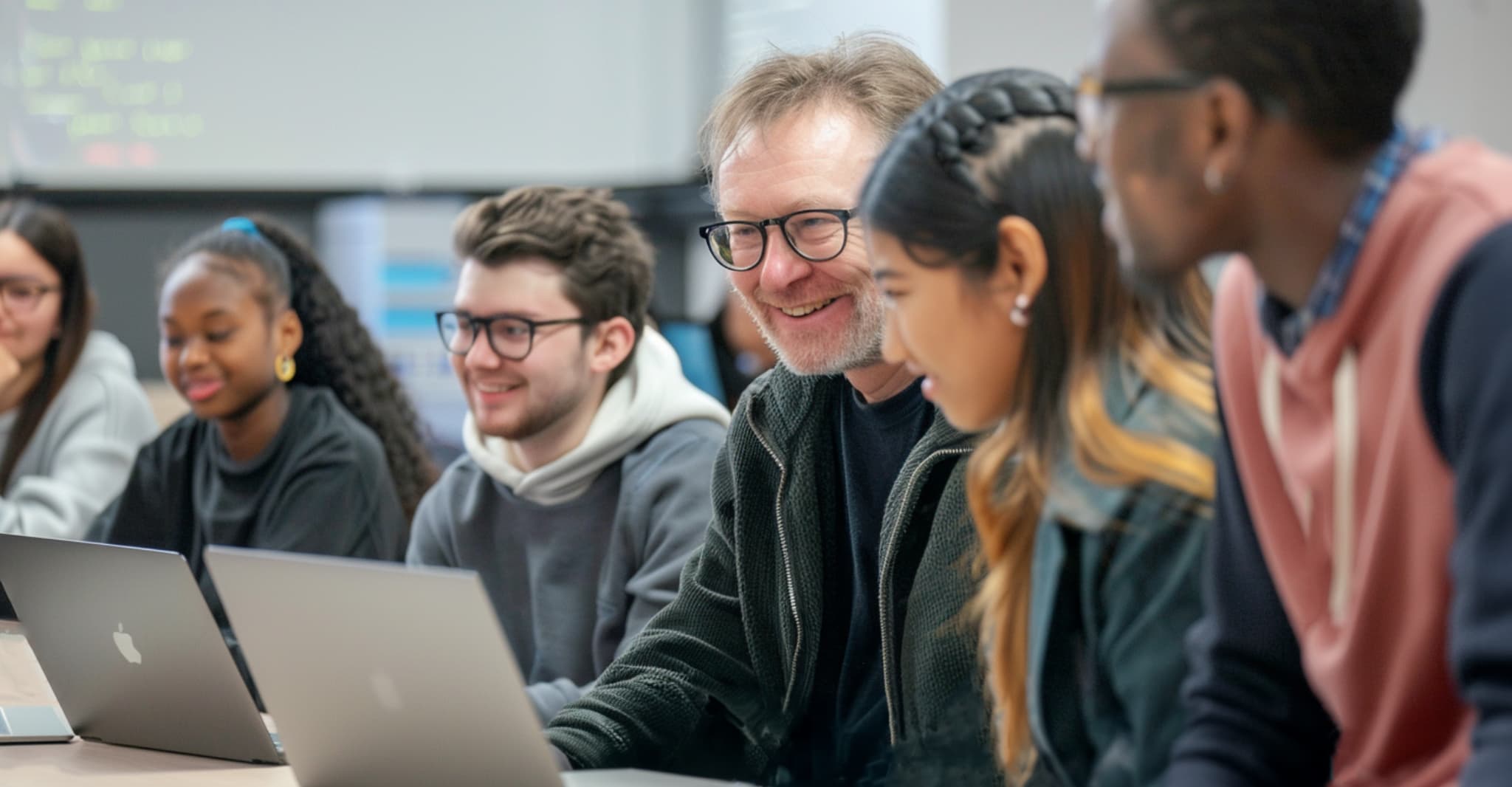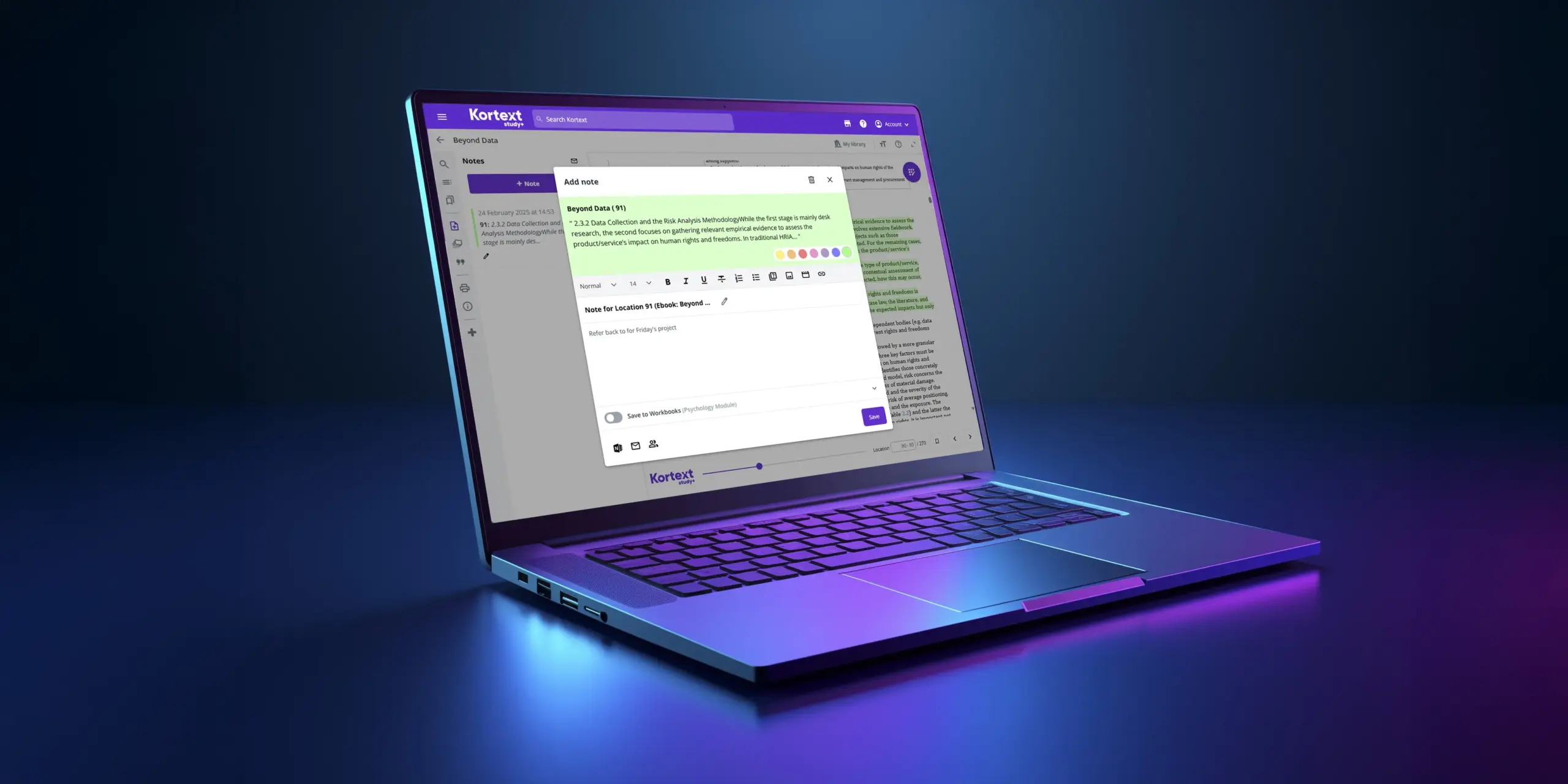Empowering educators and students in hybrid learning environments
In the post-pandemic landscape, where technology permeates every aspect of our lives, the concept of digital capability has never been more pertinent. But what does it mean?
Digital capability encompasses far more than just technical skills; it encapsulates the mindset, aptitude, and proficiency required to not only survive but thrive in today’s digitally-driven world.
In this blog, we’ll explore the importance of digital capability in higher education by delving into key findings from our collaborative white paper with Wonkhe.
Educators’ digital priorities
In spring 2023, Wonkhe and Kortext conducted a survey of educators in UK universities to explore how the role of technology in learning, teaching and student support has evolved post-Covid.
A majority (79%) of the respondents identified as strong advocates for advancing digital capabilities in education, rating themselves at four or five on a five-point scale.
When asked why, answers included ‘the importance of digital skills for graduate employment’ and a sense that ‘embracing digital technology orients individuals and organisations towards the future’.
“I believe it’s one of the most important aspects of providing high quality teaching, learning, and assessment. We have a duty to improve the digital literacy of our students to better prepare them to thrive in a digital world.” Learning and teaching professional, FE college.
The respondents were asked to identify their top priorities as educators: the most popular options being digitally enhanced pedagogy (70%), inclusion (69%) and developing digital literacy (59%).
These priorities align closely with why respondents were enthusiastic about technology – to engage students in learning, to make learning more inclusive, and to prepare students for the future.

Challenges and opportunities
Over three-quarters (78%) of respondents were very confident (selecting four or five on a five-point scale) that improving organisational or digital capabilities can contribute to overall student success.
However, the survey also revealed that educators are not particularly confident that students understand what’s expected of them when it comes to engaging in digitally enhanced learning.
Some reported that their institutions had clear expectations of students, which had been well communicated.
“It is embedded within my courses from open day to graduation. Students need to be supported in what can be a difficult and challenging journey.” Academic, post-92 university.
Yet others said there was considerable variation between courses, suggesting the need for institutions to define a core set of digital capabilities that students should graduate with.
“It can be very confusing, and students aren’t necessarily as digitally literate as they are often expected to be. Despite online learning during Covid, they may lack experience in digital environments, and with unfamiliar tech.” Learning and teaching professional, post-92 university.
As students were thought to be lacking in confidence using digital technologies, so too were some educators. It was felt that if staff were more confident, this attitude would translate to the students.
However, many respondents spoke of barriers to enhancing individual and institutional digital capabilities, such as high workloads, financial challenges, or a need for a widespread culture change.
For the flexible learning programme team at The University of Manchester, understanding and developing the digital capabilities of students and staff is a critical success factor in higher education.
“We need to build this confidence and capability in such a way as to foster an environment where staff and students can adapt to new technologies and identify ways in which they can support their pedagogic approaches.” UoM flexible learning programme team.
Further, the team believes institutions should be seeking an outcome where ‘digital’ is no longer a separate term – learning is just learning, no matter what the mode of delivery.
“This post-digital vision can only be achieved through the seamless integration of digital tools and the increased capabilities of our staff and students.” UoM flexible learning programme team.
Leveraging technology
Post-pandemic, hybrid learning and working have become more normalised. For Dr Emily McIntosh, Director of Student Success at the University of the West of Scotland, there’s a need to reconsider the meaning of connection and community in an environment mediated by technology.
“We are ubiquitously connected through our devices, yet many of us struggle with feeling authentically connected.” Dr Emily McIntosh.
So, rather than using technology as a replacement for in-person activities, instead the emphasis should be on actively designing hybrid learning experiences that thoughtfully blend face-to-face activities with technologies supporting independent learning.
“In practice, this comes down to changing the process of course and service design, enabling co-creation between IT, learning technologists, professional services, academics, and students. The conversation needs to be opened up to more people and focus on both pedagogy and student support.” Dr Emily McIntosh.
Further, successful collaborations with technology providers should involve co-creation to develop effective platforms. As universities become more adept at determining their needs, their expectations of providers are likely to change too, favouring those capable of genuine partnership.

Insights on digital transformation
To foster digital capabilities among students and staff, universities will need to undergo a process of digital transformation.
Yet, while establishing a new technological infrastructure may be relatively straightforward, changing the values, beliefs, and practices influenced by digital technology will be more challenging.
“…this is where we need to direct the most attention … people, not technology, should be the major focus of the transformation process.” Heidi Fraser-Krauss, Chief Executive of Jisc.
To help higher education institutions navigate the complexities of this process, Jisc has developed a framework for digital transformation which encourages a whole-organisation approach, encompassing people and practices, not just processes and technology.
Additionally, Jisc offers a maturity model to help higher education institutions assess their digital maturity, benchmark themselves against the sector, and set goals for development.
Together, these tools facilitate organisation-wide digital transformation, encompassing technology, data, and cultural values and principles.
A digitally-driven future
Enhanced digital capability is essential for students to excel in our increasingly digitalised world; the imperative for digital skills in graduate employment is evident.
Despite some barriers at individual and institutional levels, strategies including carefully designed blended learning, clearly defined expectations and robust support mechanisms offer a way forward.
Yet, achieving digital transformation will require both cross-institutional collaboration and partnerships with technology providers like Kortext. Together, we can shape a future where digital capability empowers success in higher education and beyond.
To download ‘Setting the Curve’, a collaborative white paper by Wonkhe and Kortext, tap here.






